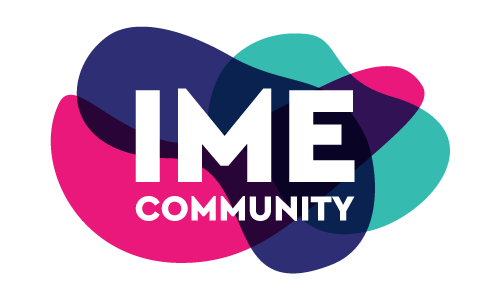I’m going to give you a warning. This is all super helpful information. It’s a powerful article. I’m going to be disrupting the status quo that clearly hasn’t worked and also I will be coaching you to create a different way forward. Are you ready? It’s data and information. I am not your doctor, so always make sure you are seeking the advice of your medical doctor.
What Is Obesity (Nufnu)?
Obesity (nufnu) is a multi-factorial disease medical, endocrine, environment, genetic/epigenetic, immune, and neurobehavioral components.
Obesity (Nufnu) related disease risks may vary depending on your metabolic health.
How Nufnu Relates to Metabolic Syndrome and IR
Metabolic consequences of nufnu include the components of metabolic syndrome plus the inflammatory and thrombotic states. There’s more inflammation and increased risk for thrombosis (blood clotting).
Type 2 diabetes is closely associated with nufnu and begins with insulin resistance that starts 10 to 15 years before diagnosis. This is why I’m so ready to reverse IR in teens. Just because your HgbA1c and fasting blood sugar is normal, doesn’t mean that you don’t have IR or aren’t at risk for type 2 diabetes. Again, lots of information.
Focus on Metabolic Health, Not Weight
This is your opportunity to start to focus on your metabolic health and not stay fixated on weight. If you focus on improving your metabolic health, and I’m going to teach you how to do that, your body will reach a natural weight set point.
So, let’s take a big breath in through our noses and out again and activate our parasympathetic calming nervous system. Relax. You are worthy of your healthy life.
Again, I’m talking about metabolic health this week in the RYIR challenge. What is metabolic health? Where do I go for more information? Check out “The Obesity Code” by Dr. Jason Fung and also go to the Society of Metabolic Health Practitioners or smhp.org. I’m a founding member.
First, there’s not a real consensus with these definitions and criteria. I really think this is a helpful and productive way to think about health and how to reverse insulin resistance and its metabolic health effects. It’s a way to think about it that actually calls out the problem and offers a true solution.
MUO and MHO and MUL are definitions used to describe Metabolically Unhealthy nufnu and Metabolically Healthy nufnu and Metabolically Unhealthy Lean. We have to stop thinking that weight equals health or that it’s all cause and effect. Our bodies and brains are complex systems.
Your metabolic health is important. Many of you are tired and bored with focusing on a number on the scale, and don’t have any problems and at the same time your health is important to you. This is where our society gets really messed up and confused.
I am helping you create a metabolic health approach and that may fit more into your Future Self vision and feel more empowering and also help get you out of fixed, limited, unfun, restrictive diet thinking.
What is metabolic health? Metabolic health is defined as having ideal levels of blood sugar, triglycerides, HDL or “good” cholesterol, blood pressure, and waist circumference. These relate to your risk for heart disease, diabetes, and stroke.
That brings me to metabolic syndrome. Have you heard of metabolic syndrome? You may have heard of metabolic syndrome. I have taken care of many teens who have metabolic syndrome.
Playlist break: “Born to Run” by the Boss
Playlist break: “C’mon N’ Ride It” by Quad City DJ’s
Be Informed and Make Your Own Healthy Decisions
If you get your information from Google and you follow the guidelines for Prevention, it’s really just the bullet point status quo recommendations. Let’s take a more fun and interesting and effective approach to improving your metabolic health. We all need more than bullet point recommendations, especially the recommendations that keep saying the same stuff over and over that hasn’t worked.
Playlist break: “Speed of Sound” by Coldplay
There is power in knowledge. Get internal and make your own autonomous decisions. Since I coach teens and I’m a Mom to three young people and I’m also someone who hates when someone tells me what to do, I can tell you there is so much power in getting internal and making your own choices. Many of us adults are like this. I think we all are.
The Week 7 Reverse Your Insulin Resistance Challenge
Monday Mythbusters: Calories are not the key to improving your metabolic health. It’s not that simple. Unfortunately, even though we can look around and see that simple calories in calories out thinking, just Eat Less Move More thinking, remains the standard of care in medicine. It often doesn’t work. It keeps us stuck in diet culture. That’s been beat in our heads for ages — to look at the back of a box and the nutritional information, the fat, the sodium, etc.. We are used to eating our food like this, in processed fashion where its value is determined by calories. Another false notion beat into our heads is that we need to count calories and burn as much as we eat through exercise to be a healthy weight.
Here’s the good news: simply eating less does not make you lose weight. “The low-fat, low-calorie diet has already been proven to fail,” said Dr. Jason Fung in his book The Obesity Code. You don’t have to eat less fat or calories to lose weight, but you do need to look at the quality and composition of your food and one way to improve the quality of your food is to cut down on processed carbs.
Let’s Learn more about Insulin Resistance Tuesday: Our bodies are so incredible and interesting. Don’t fight with your body. Our bodies are built to conserve energy. Our bodies were not meant to be exposed to the added sugars in our food system. Our brains are conditioned to crave sugar because of the added sugars in processed foods. Obesity is hormonal and not simply caloric. When we eat carbohydrates or sugars, insulin is released to bring the glucose into the cells. Insulin binds to a receptor, like a lock and key, and then glucose can be transported into the cells. Nutrients like carbohydrates raise insulin the most, whereas fats release the least amount of insulin. Every time you eat or snack, you are raising your insulin levels. Excess sugar is stored as fat. Your body can become resistant to insulin. Insulin is linked to other diseases and comorbidities. For example, if your body builds resistance to insulin, you may become diabetic.
What is metabolic syndrome Wednesday? Metabolic syndrome is a constellation of findings and includes high blood pressure, high blood sugar or glucose, increased body fat around the waist, and abnormal cholesterol levels (HDL and Triglycerides) and is linked to increased risk for type 2 diabetes and heart disease. About 1/3 of U.S. adults have metabolic syndrome. Metabolic Syndrome is related to Insulin Resistance. I’ve taken care of many teens with metabolic syndrome.
Playlist break: “We are the champions” by Queen
The risk factors for metabolic syndrome are: age, ethnicity, obesity, family history of diabetes, and if you’ve ever had nonalcoholic fatty liver disease, polycystic ovary syndrome or sleep apnea.
If you have one risk factor, you should be assessed for the others.
Gathering your metabolic health data Thursday: What’s your risk for metabolic syndrome? Metabolic syndrome is a complex condition. These are important measures to assess your metabolic health. There are four main components of metabolic syndrome and four measurements: Blood Pressure, Waist Circumference, Blood glucose (sugar), and Fasting lipid panel (cholesterol)
Playlist break: “Rock the Casbah” by The Clash
How to think differently Friday? You can always improve your metabolic health. First, you have to reject diet culture and get out of restriction, on again and off again thinking. You can’t look for answers outside of yourself. So, this amazing information helps you get unstuck. Also, know your risks. You are gathering data and getting information. How important is this? What’s my level of confidence? What’s my readiness for change? Remember, small consistent changes are what you need. If you are a teen or parent of a teen, you’ll want to Join the IME member Community. I’ll coach you to create the results YOU want and I will meet you where you are and always have your back along the way. Also, remember, I never coach on anything I haven’t already gone through.
Playlist break: “Cars” by Gary Numan
Small changes create big metabolic health rewards Saturday? What you decide on is what works. It’s that simple. But, small changes are very important and over time can create long-lasting improvements in your metabolic health.
How consistent should I be Sunday? Remember when we talked about slaying your goals in week 6? If not, you may want to go back and review. To take massive action doesn’t mean you are changing everything up all at once. To transform or improve your metabolic health, what you need to be intentional about is showing up every day for yourself, create self-trust by keeping promises you make to yourself, having your back by being kind to yourself, and doing the thought work when you’re stuck.
Final playlist break: “Party in the U.S.A.” by Miley Cyrus
Get ready for week 8 where I’m going to coach you to coach yourself! Now, this is the most powerful work!
Watch the Video Replay
Up Next: Week 8 – Positive Body Image
Reverse Your Insulin Resistance Challenge Table of Contents
Week 1: Introduction
Week 2: Why Do We Overeat?
Week 3: Coping with Food Cravings and Urges
Week 4: How Much Physical Activity Is Enough?
Week 5: Social Media Friend Drama
Week 6: Get to Your Natural Weight Set Point
Week 7: Your Metabolic Health
Week 8: Positive Body Image
Week 9: Diffusing Low Carb Confusion
Week 10: Self Love Superpower
Week 11: Stress Less, Sleep More

